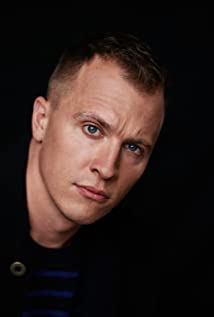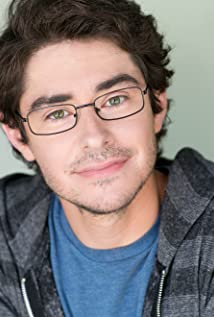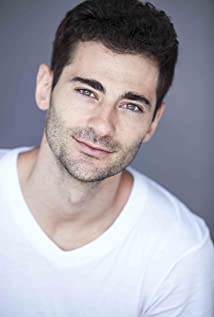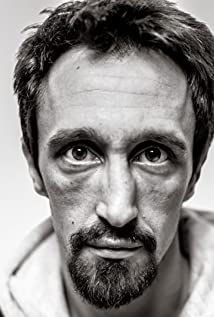Shin'ichi Chiba was born on January 22, 1939 in Fukuoka, Japan, Japan, is Actor, Stunts, Miscellaneous Crew. Pivotal figure in the 1970s explosion of martial arts cinema as lethal "fists for hire" trouble shooter, Takuma (Terry) Tsurugi, starring in the phenomenally popular and ultra violent "The Street Fighter" series of action films. Sonny Chiba wasn't a graceful, fluid fighter like screen icon Bruce Lee, but rather he was a ferocious machine that mowed down his opponents with his fists and feet, always with a menacing grimace on his face!Chiba was born Sadao Maeda in Fukuoka, Japan in 1939 and shared a house along with four other siblings to a father who was a military test pilot. As a youth, he was keen on both theatre and gymnastics, and was a talented enough athlete to score a position in the Japanese Olympic Team, until a chronic back injury finished his gymnastic aspirations. However, whilst at university he took a strong interest in karate under the guidance of the legendary "Mas Oyama", and soon earned his first black belt. However, his life took another turn, when in 1960 he was discovered during a talent search by Toei Studios, and he soon began his screen career under the name of "Shinichi Chiba", appearing as "Space Chief" in _Uchu Kaisoku-ken (1961)_ (aka "Invasion of the Neptune Men). Over the next decade, Chiba busied himself with many appearances in Japanese crime thrillers and steadily built a reputation for playing hard men of few words and direct actions.With his martial arts proficiency in karate, judo & kenpo, he was in the box seat to take advantage of the early 1970s martial arts boom commenced by Chinese superstar Bruce Lee, and Chiba starred in the brutal and uncompromising Gekitotsu! Satsujin ken (1974) (aka "The Streetfighter"). The film has Chiba playing a mercenary style, street thug who will do anything for a price, and take on most anyone, including the Japanese Yakuza. The approach of the film was quite different from the Bruce Lee films in that Lee only eliminated his enemies when he was defending his friends or his honor. Quite the opposite, Chiba was only after a fistful of dollars for his deadly services and would engage in mortal combat for the highest bidder, although this often clouded his judgement to his own detriment. The only person "The Street Fighter" respects is his martial arts teacher, the short rotund, karate master "Masaoko" played by Masafumi Suzuki, who manages to easily out smart and out fight the frustrated Chiba! Upon its release, the film was roundly criticised for its excessive violence, including the amazing finale where a lethal blow to the ringleader's skull is shown in x-ray on screen. Fans didn't care, and they flocked in their thousands to see this economically made, yet eye catching chop socky spectacular.A sequel quickly followed with him back again in the messy production Satsujin ken 2 (1974) (aka "Return of The Streetfighter"), which was followed by a third Streetfighter movie also starring female martial arts dynamo Etsuko Shiomi in the gritty Onna hissatsu ken (1974) (aka "Sister Street Fighter"), and then the fourth and final film in the series _Gyakushu Satsujin ken (1974)_ (aka "The Street Fighters Last Revenge"), which was arguably the best of all the sequels.Chiba had firmly established himself as a key anti-hero of Asian martial arts cinema who said little, and used his fists to sort out his troubles. With the demand high from keen action fans, he remained remarkably busy on screen for the next twenty years starring in numerous Japanese film & TV productions with an emphasis on bruising fights, samurai swords, Yakuza gangsters and pretty girls in trouble.Outside of Japan, the "Street Fighter" series of films has achieved enduring popularity through many midnight cult screenings, and their style heavily influenced a youthful indie filmaker named Quentin Tarantino. Tarantino has used strong references and imagery from the "Street Fighter" movies in several of his films including True Romance (1993) and _Pulp Fiction (1995)_. And when Tarantino came around to casting his mammoth Kill Bill: Vol. 1 (2003) project, he was awed to have Chiba accept the key role of the hot headed, and sometimes humourous, Okinawan sword maker "Hattori Hanzo. Sonny Chiba has undoubtedly been a major figure and ongoing influence in the worldwide passion for martial arts movies for over thirty years, and he continues to actively contribute to the genre by encouraging & training young hopefuls seeking to make their mark on screen.
Shin'ichi Chiba is a member of Actor
Does Shin'ichi Chiba Dead or Alive?
As per our current Database, Shin'ichi Chiba is still alive (as per Wikipedia, Last update: May 10, 2020).
🎂 Shin'ichi Chiba - Age, Bio, Faces and Birthday
Currently, Shin'ichi Chiba is 86 years, 1 months and 1 days old. Shin'ichi Chiba will celebrate 87rd birthday on a Thursday 22nd of January 2026. Below we countdown to Shin'ichi Chiba upcoming birthday.
| Popular As |
Shin'ichi Chiba |
| Occupation |
Actor |
| Age |
86 years old |
| Zodiac Sign |
Aquarius |
| Born |
January 22, 1939 ( Fukuoka, Japan, Japan) |
| Birthday |
January 22 |
| Town/City |
Fukuoka, Japan, Japan |
| Nationality |
Japan |
🌙 Zodiac
Shin'ichi Chiba’s zodiac sign is Aquarius. According to astrologers, the presence of Aries always marks the beginning of something energetic and turbulent. They are continuously looking for dynamic, speed and competition, always being the first in everything - from work to social gatherings. Thanks to its ruling planet Mars and the fact it belongs to the element of Fire (just like Leo and Sagittarius), Aries is one of the most active zodiac signs. It is in their nature to take action, sometimes before they think about it well.
🌙 Chinese Zodiac Signs
Shin'ichi Chiba was born in the Year of the Rabbit. Those born under the Chinese Zodiac sign of the Rabbit enjoy being surrounded by family and friends. They’re popular, compassionate, sincere, and they like to avoid conflict and are sometimes seen as pushovers. Rabbits enjoy home and entertaining at home. Compatible with Goat or Pig.
Some Shin'ichi Chiba images
Biography/Timeline
1960
Sometime around 1960, he was discovered in a talent search (called "New Face") by the Toei film studio, and he began his screen career soon after as Shin'ichi Chiba.
1961
His acting career began on television, starring in two Tokusatsu superhero shows, first replacing Susumu Wajima as the main character Kōtarō Ran/7-Color Mask in 7-Color Mask (Nana-iro kamen) in the second half of the series then starred as Gorō Narumi/Messenger of Allah in Messenger of Allah (Allah no Shisha). His movie debut and first starring movie role was the 1961 science fiction movie Invasion of the Neptune Men. Later that year, Chiba appeared in the first Kinji Fukasaku film, Wandering Detective: Tragedy in Red Valley which marked the beginning of a long series of collaborations for the two. Over the next decade, he was cast primarily in crime thrillers. He also adopted the English name Sonny Chiba, initially because of his association with a Toyota advertising campaign for a car called the "Sunny-S". By 1970, Chiba had started his own training school for aspiring martial arts film actors and stunt performers known as J.A.C (Japan Action Club). He starred in the Karate Kiba (Bodyguard Kiba), after appearing on the Battles Without Honor and Humanity: Hiroshima Deathmatch in 1973. Karate Kiba was the first movie for him about martial arts. Chiba's breakthrough international hit was The Street Fighter (1974), which established him as the reigning Japanese martial arts actor in international cinema for the next two decades.
1965
Chiba went to the Nippon Sport Science University in 1957. He was a serious candidate for a place in the Japanese Olympic team in his late teens until he was sidelined by a back injury. While he was a university student, he began studying martial arts with the renowned Kyokushin Karate master Masutatsu "Mas" Oyama (whom he later portrayed in a trilogy of films), which led to a first-degree black belt on October 15, 1965, later receiving a fourth-degree on January 20, 1984.
1975
His subsequent projects included such pictures as The Bullet Train (1975), Karate Warriors (1976), Doberman Cop (1977), Golgo 13: Assignment Kowloon (1977) and The Assassin (1977). He also occasionally returned to the science fiction genre, in movies such as Message from Space (1978). He began to star also on some jidaigeki such as Shogun's Samurai (1978), The Fall of Ako Castle (1978), G.I. Samurai (1979), Shadow Warriors (1980), Samurai Reincarnation (1981). He was not only actor but also stunt coordinator at G.I. Samurai, Burning Brave (1981), Shogun's Shadow (1989) and executive Producer, film Director at Yellow Fangs (1990).
1980
Chiba was even busier in the 1980s, doing dozens of movies as well as making forays into television, and with roles in such high-profile adventures as the popular Hong Kong comic-based movie: The Storm Riders (1998), starring alongside Ekin Cheng and Aaron Kwok. His fame in Japan remained unabated into the 1990s.
1996
Chiba divorced his first wife, Actress Yoko Nogiwa with whom he has a daughter, Juri Manase, also an Actress. He has two sons from his second marriage; child actor Mackenyu Arata (新田真剣佑, Arata Makken'yū) born on November 16, 1996 and Gordon (郷敦), born in 1998. He currently lives in Yokohama, Japan. His younger brother, Jirō Yabuki (also known as Jiro Chiba), was also an actor.
2003
In his fifties, the actor resumed working under the name Shinichi Chiba when he served as a Choreographer of martial arts sequences. At the dawn of the 21 century, Chiba was as busy as ever in feature films and also starring in his own series in Japan. Roles in Takashi Miike's Deadly Outlaw: Rekka and his work with Directors Kenta and Kinji Fukasaku's Battle Royale II effectively bridged the gap between modern day and yesteryear cinematic cult legends. Chiba's enduring onscreen career received a tribute when he appeared in a key role as Hattori Hanzo, the owner of a Su Shi restaurant and retired samurai sword craftsman, in Director Quentin Tarantino's bloody revenge epic Kill Bill in 2003.
2007
Chiba has starred in more than 125 films for Toei Studios and has won numerous awards in Japan for his acting. In November 2007, he announced the retirement of the stage name Shinichi Chiba and will now be known (in Japan) as J.J. Sonny Chiba (JJサニー千葉, Justice Japan Sonny Chiba) as an actor and Rindō Wachinaga (和千永 倫道, Wachinaga Rindō) as a film Director.
Shin'ichi Chiba trend
















